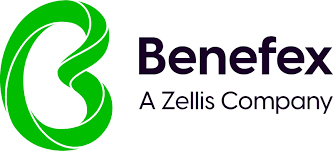Employee Benefits
Spotlight on Malaysia – A guide to implementing employee benefits technology
23.12.24
With its skilled and multilingual workforce, Malaysia is rapidly establishing itself as a hub for professional services.
Significant investments in local hubs and employee training are driving the need for employers to create exceptional employee experiences that keep their workforce engaged.
One way companies are looking to drive loyalty and attract the very best people is by expanding the range of benefits they offer to employees. Allowances and reimbursements are growing in popularity, as they help employees manage day-to-day living costs and provide flexibility to suit individual needs.
An overview of the employee benefits landscape in Malaysia
Mandatory benefits
Employers in Malaysia are required to provide several mandatory benefits, ensuring that employees receive essential protections and support.
This includes retirement benefits. Retirement savings in Malaysia are managed through the Employees Provident Fund (EPF), which employers and employees contribute to based on salary:
- Employers contribute 12% for those earning above MYR 5,000, and 13% for those earning below this threshold.
- Employees contribute 11% of their pensionable salary, with an option to add voluntary contributions up to an additional 7%.
- Additionally, the Invalidity Pension Scheme (IPS) provides financial support for employees who are permanently disabled. Contributions to the IPS are shared between employers (1.75%) and employees (0.5%). The scheme is administered by the Social Security Organisation (SOCSO), covering work-related injuries, disabilities, and death.
Core benefits in Malaysia
In addition to the above mandatory benefits, many employers offer:
Medical insurance
Medical insurance is the most in demand benefit, covering outpatient and inpatient treatment. Upper tier employers often extend coverage to dependants, while mid-tier companies may require employee contributions for family member coverage. With long waiting lists at public hospitals, employees value private healthcare highly.
Many employers offer medical reimbursement plans to cover additional costs such as dental, optical, health screening, vaccinations, maternity care, and even medical expenses for parents or in-laws.
Life and disability insurance
Multinational companies frequently provide life and disability insurance, with cover for 3x the employee’s annual salary as standard. A lump sum is paid out to employees for disability and terminal illness; for terminal illness, individuals qualify if they’ve been given a maximum of 12 months to survive.
Accidental death and personal accident insurance is also prevalent, with 3x the employee’s annual salary also being a common benchmark.
Supplementary pension plans
While supplementary pension plans are rare, they are sometimes offered as part of above market benefits packages.
Popular benefits in Malaysia
Wellness benefits and allowances
Wellbeing allowances are common in the professional services sector (two thirds of organisations in the sector offer allowances). Broader allowances for lunch, meals, and winter clothing also remain popular – but can be admin intensive for employers.
Employers increasingly use platforms like OneHub to streamline communication and signpost the range of available services on offer – for example Employee Assistance Programmes which offer support for financial and emotional wellbeing.
Car and transportation allowances
Car allowances are often provided to management-level employees, while commuter allowances are popular for other roles, depending on location.
Tech benefits
Younger employees particularly value tech-related perks, including phone bill allowances and discounts on devices; tech benefits have become increasingly common and are now typically offered to all employees (where traditionally only senior execs would have had access).
Childcare benefits
Childcare subsidies and discounts for early education are becoming more common, helping employees manage family life.
Learning and development
Malaysians place high value on personal and professional growth. Educational benefits such as languages courses, certifications and sponsorship for qualifications are highly sought after.
Charitable giving
Community involvement is important in Malaysia, and many companies provide employees with opportunities to donate to charities or volunteer.
Key considerations for implementing employee benefits in Malaysia
- Offer flexibility in benefits
With a highly skilled, younger workforce, offering allowances and a range of benefits that employees can tailor to suit their lifestyle is key; and benefits that support family wellbeing are especially valued.
Although flex funds to spend on benefits are still relatively rare, this can provide employees with the ability to select the benefits that best suit their lifestyle – so is an area we expect to grow.
- Bring all your benefits together in one place
Employees in Malaysia increasingly expect technology to simplify their day-to-day lives, but benefits technology still lags behind. Centralising benefits, allowances and wellbeing information is essential to create a seamless employee experience.
- Consider the 13th month salary
Known as the Annual Wage Supplement, it’s customary and often expected by employees (but not mandatory) for larger employers to pay a 13th month salary at the end of the calendar year. This is exempt from tax if it doesn’t exceed the employee’s monthly salary.
Wherever your people are located, an exceptional employee benefits experience is foundational to your ability to attract and motivate the very best people. Take a look at our Going global with benefits guide, where we explore the benefits landscape in 12 key countries. Or chat to our team about your global benefits strategy.
Associated products and services
